Planetary Science
-
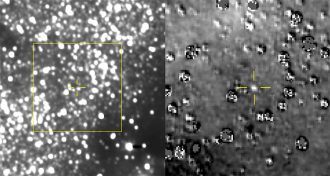 Planetary Science
Planetary ScienceNew Horizons has sent back the first images of Ultima Thule, its next target
NASA probe gets its first look at distant Kuiper Belt object
-
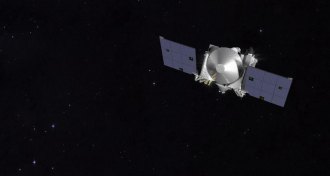 Planetary Science
Planetary ScienceOSIRIS-REx snaps first images of asteroid Bennu
OSIRIS-REx got its first glimpse of near-Earth asteroid Bennu. The probe will collect a sample from the asteroid and return it to Earth.
-
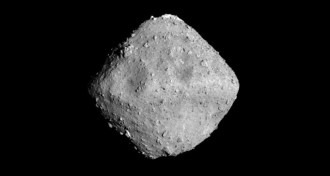 Planetary Science
Planetary ScienceHere’s where the Hayabusa2 spacecraft will land on the asteroid Ryugu
Japan’s Hayabusa2 probe and its landers will touch down on the asteroid Ryugu in the next few months to pick up dust samples and return them to Earth.
-
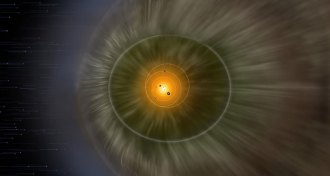 Astronomy
AstronomyNew Horizons may have seen a glow at the solar system’s edge
New Horizons may have seen a hydrogen wall just past the edge of the solar system, where the solar wind meets the stuff of interstellar space.
-
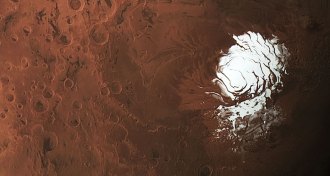 Planetary Science
Planetary ScienceWhat does Mars’ lake mean for the search for life on the Red Planet?
A lake spotted hiding under Martian ice could support life, but finding out if anything lives there could be challenging.
-
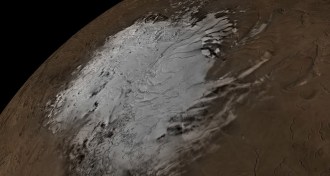 Planetary Science
Planetary ScienceMars (probably) has a lake of liquid water
A 15-year-old Mars orbiter has spotted signs of a salty lake beneath the Red Planet’s south polar ice sheets.
-
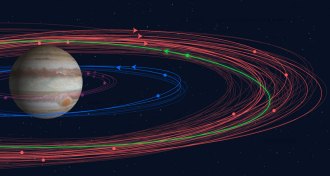 Planetary Science
Planetary ScienceJupiter has 12 more moons than we knew about — and one is bizarre
Astronomers found a dozen previously unknown moons of Jupiter, and one may be a remnant of a larger moon that was all but ground to dust.
-
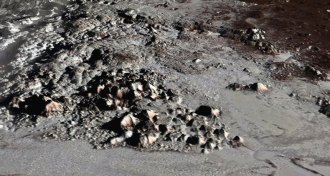 Planetary Science
Planetary ScienceFirst global maps of Pluto and Charon show the worlds’ highs and lows
New charts of Pluto and its moon Charon, compiled using New Horizons’ data, reveal high peaks, deep depressions and strange ridges.
-
 Astronomy
AstronomyAstronomers snap the first baby pictures of a planet
New telescope images give the clearest view of an exoplanet embryo yet.
-
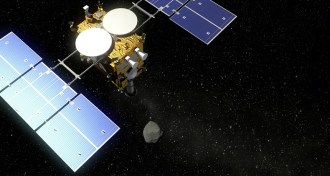 Astronomy
AstronomyJapan’s Hayabusa2 spacecraft arrives at the asteroid Ryugu
The Hayabusa2 spacecraft says “hello” to near-Earth asteroid Ryugu.
-
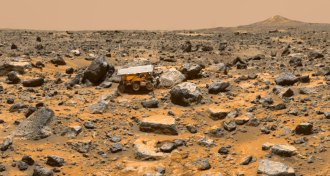 Planetary Science
Planetary ScienceMars got its crust quickly
The Martian crust had solidified within 20 million years of the solar system’s formation.
-
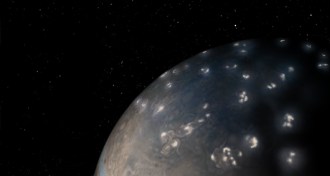 Astronomy
AstronomyOn Jupiter, lightning flashes from storms swirling at the poles
After almost 40 years, scientists have discovered that Jupiter has lightning that is similar to lightning on Earth — it just happens in a different place.